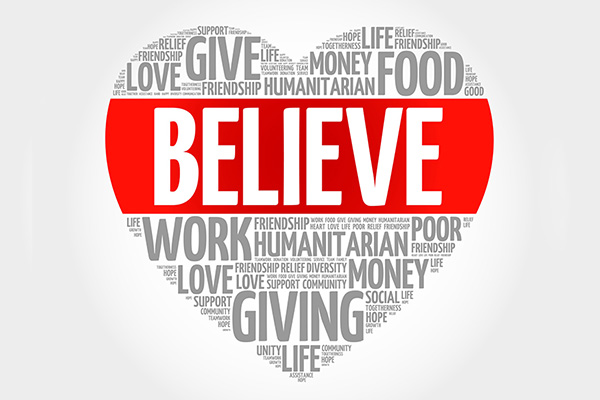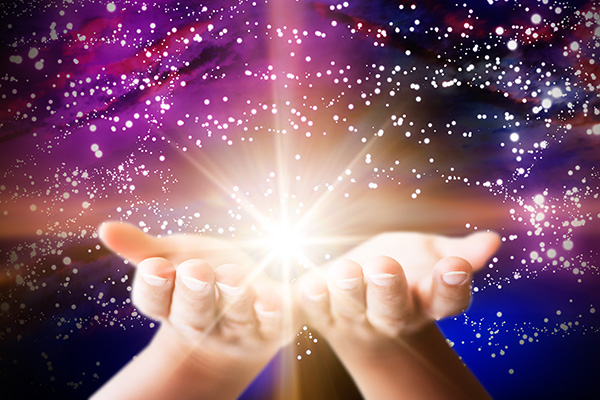spiritual awareness
We Choose Our Way Of Being In The World
 Our material belongings reveal much about how we tend to operate in this world. For example, I can look at the make of a person’s vehicle, as well as the model, size, and color, and instantly get a sense of how they navigate through life. I further believe we also choose our way of being in this world, based on our spiritual mindset.
Our material belongings reveal much about how we tend to operate in this world. For example, I can look at the make of a person’s vehicle, as well as the model, size, and color, and instantly get a sense of how they navigate through life. I further believe we also choose our way of being in this world, based on our spiritual mindset.
A good friend and I own the same make of car, but different models. Mine happens to be a smart car and hers is a jeep. This makes perfect sense to me in terms of our personalities and lifestyle.
I am small in stature, so it is only logical that my preferred vehicle would also be small, snug and space efficient. She, on the other hand, frequently has to transport passengers, as well as plants, clothes and a variety of household items that belong to the members of her family.
More interestingly, however, is that both of us have experienced the exact same technical problem with our cars. There was a time when both our cars suddenly indicated that the brake lights were no longer functioning.
When that little warning light came on in my car, I immeditately sensed the worst, but I secretly hoped that only the bulbs might need to be changed. To my shock and horror, the entire panel eventually had to be replaced. The day I took the car in to be fixed, I miraculously escaped a major traffic accident on my usual route at my usual travel time, because my car happened to be in the shop. Yes, sometimes a malfunctioning brake light can in fact save your life!
Using The Mandala In Your Spiritual Practice
 Years ago, I taught a class on sacred geometry. My favorite section of the class was related to using mandalas as a tool for the inward journey and I would like to share this practice with you.
Years ago, I taught a class on sacred geometry. My favorite section of the class was related to using mandalas as a tool for the inward journey and I would like to share this practice with you.
When using a mandala as a form of meditation you begin by creating a large circle. I have always found it easier to start with a graph based on concentric circles, but others start with just a circle and their imagination or intuition. Start at the outer edge of the circle to begin your session and work your way around the outer edge. Gradually work your way to the center of the mandala – this represents the inward journey.
We start by creating patterns and designs on the outside of the circle. This is the largest part of the circle and represents the universe. Understanding the expansiveness of the universe we can feel very small and insignificant, so it is important to move inward to find our grounding within the cosmos.
As we move inward in our mandala we contemplate our planet, then our country or large group of people we identify with the most. For many people this can be a religious tradition. We then move to contemplating our acquaintances, family, and friends.
Towards the center many mandala meditators will create four sides, or a square that leads to the center of his or her mandala. These four sides represent the four cardinal points, South, West, North, and East.
The Key Elements Of Spirituality
 One of the core principles of spirituality is the belief that we are all connected to something greater than ourselves. Whether we call this higher power God, Source, Spirit, the Universe, or the Divine, this belief is the fundamental tenet of all religions and spiritual traditions.
One of the core principles of spirituality is the belief that we are all connected to something greater than ourselves. Whether we call this higher power God, Source, Spirit, the Universe, or the Divine, this belief is the fundamental tenet of all religions and spiritual traditions.
By recognizing our connection to something greater than ourselves and the interconnectedness of all things, we find a sense of peace and purpose that transcends our individual concerns and uncertainties.
Another important aspect of spirituality is the concept of mindfulness. Mindfulness involves paying attention to the present moment, without judgment or distraction.
By practicing mindfulness, we become more aware of our thoughts, feelings, and physical sensations, and learn to cultivate a greater sense of inner peace and calm. Mindfulness can take many forms, from simple breathing exercises to more elaborate meditation practices.
Gratitude is another key component of a truly spiritual lifestyle. By cultivating a sense of appreciation for the gifts and blessings in our lives, we shift our focus away from self-limiting fear, negativity, lack consciousness and a scarcity mentality towards the love, hope, benevolence and abundance that surrounds us.
Whether we are grateful for our health, our relationships, or simply the beauty of the natural world, expressing gratitude can help us feel more content and fulfilled.
True Spirituality Is About Everyday Existence
 It is often assumed that to lead a truly spiritually aware life we must increasingly distance ourselves from the material world and be more fully immersed in the spiritual world. We must reduce our involvement with all things physical, and instead focus exclusively on the non-physical or metaphysical.
It is often assumed that to lead a truly spiritually aware life we must increasingly distance ourselves from the material world and be more fully immersed in the spiritual world. We must reduce our involvement with all things physical, and instead focus exclusively on the non-physical or metaphysical.
This is, however, not what being truly ‘spiritual’ is about. True spirituality is in fact quite the opposite. It is about living this physical life to the fullest. It is about being present in every moment and living with joy, appreciation, and gratitude.
Spiritual living is about honoring and expressing the love, grace and compassion of God, Source, Spirit, the Divine in our everyday existence. It is about relishing in the divine beauty and abundance of creation, and embracing the unconditional love and light of divinity in our lives every day.
As spiritual beings in physical form we do need material things in order survive in this physical reality, and ensure a more fluid, comfortable existence. And while we are busy focusing our time and energy on acquiring those material things that we need, it does not mean we are no longer being spiritual, or not being ‘spiritual enough.’
For instance, most of us need to work to earn a living, to put food on the table and a roof over our head. Going to work every day and being of service is just as much a spiritual act as spending time in transcendental meditation, for example, or participating in a prayer circle.
To Lie, To Live, To Believe
 Our brains are naturally wired to recognize patterns, find connections between seemingly unrelated things, and draw analytical conclusions from our observations. We all use this ability every day without even knowing it.
Our brains are naturally wired to recognize patterns, find connections between seemingly unrelated things, and draw analytical conclusions from our observations. We all use this ability every day without even knowing it.
It is a talent we inherited from our ancient ancestors. Professor Robert C. Barkman explains that “pattern recognition was key to the survival of our Neanderthal ancestors, allowing them to identify poisonous plants, distinguish predator from prey, and interpret celestial events. Today, pattern recognition plays new, but just as important roles in diagnosing diseases, inspiring new ways to safeguard data, and discovering new planets.”
This amazing ability is however seldom mentioned or considered in spiritual and metaphysical circles. But Spirit has over the years guided me towards greater spiritual insight and metaphysical understanding by taking me on interesting journeys of analysis and pattern recognition towards profound insights and relevations.
For example, while meditating during Easter a few weeks ago, my guides took me ‘down a rabbit hole’ on the decisive word believe. The first insight I discovered was that right in the middle of the word ‘believe’ there hides another, more disheartening little word: lie.
Of course, ‘believe’ is a good word. It is the cornerstone to faith and living a spiritually empowered life. But the hidden word ‘lie’ inside it reminds us that we must also have a living faith for it to be authentic and powerful. And, if you drop the letter ‘v’ into ‘lie,’ it becomes the word ‘live.’
A Quantum Leap Into Powerful Manifestation
 I have been experiencing profound manifestations in recent times. It all began with an unusual spiritual encounter that led to a heightened connection with my higher self and the spirit realm. It inspired a personal quantum leap that profoundly transformed my life and especially empowered me to achieve greater levels of successful manifestation.
I have been experiencing profound manifestations in recent times. It all began with an unusual spiritual encounter that led to a heightened connection with my higher self and the spirit realm. It inspired a personal quantum leap that profoundly transformed my life and especially empowered me to achieve greater levels of successful manifestation.
For example, I struggled with limited physical mobility for over two decades due to peripheral neuropathy. It is a nerve condition that causes weakness, numbness and discomfort in my feet and toes that has made normal walking a painful challenge for many years.
But all that has been rapidly changing, due to my enhanced manifesting ability. I have recently begun to walk more frequently without a cane, and I fully expect to soon be able to permanently kick the old crutch to the curb!
One of my friends was so impressed by all the positive outcomes she has lately been witnessing in my life, that she also began making more of an effort with her own spiritual practice.
She used to labor with feelings of insecurity, sadness, and cynicism due to many disappointments in her life. As much as she had dreamed of becoming a wife and mother someday, it never materialized for her. The men that crossed her path never fully appreciated all her beautiful qualities.
